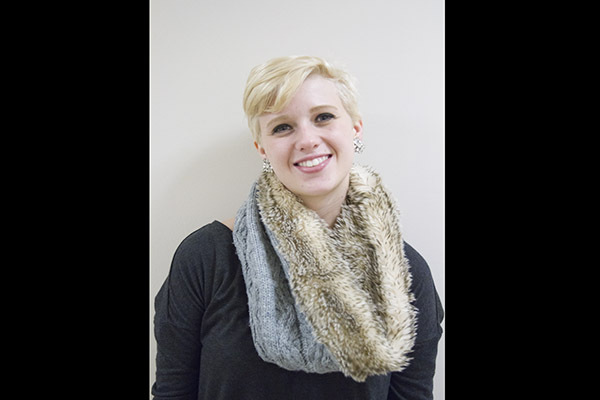As you walk through the month of October, which is Breast Cancer Awareness Month, take a long, hard look at business es as they sell the pink bracelets, pink T-shirts, pink ribbons and pink hats.
While there’s little controversy to be found with a few seemingly innocuous items, some of these pieces of material are covered with slogans that say, “Save the BOOBies,” “I love BOOBS” and “Save second Base.”
These phrases have taken away the main point of the battle. The community that battles against breast cancer should be saying, “Save the Women” or “Save Lives.” The fight against breast cancer digs deeper than just boobs.
Cancer fighters are battling for more than just looks—they’re in combat for their families, themselves, their jobs—all while cancer rips their once-healthy bodies to shreds. This cancer does not just take the lives of women. Although rare, men too are able to get breast cancer.
These phrases have devalued the main point of why we fight against cancer. “Save the BOOBies” only serves to objectify women when they are at their most vulnerable.
They’re not fighting to preserve a small piece of flesh; they’re fighting to survive.
After a woman has had a single or double mastectomy, the last thing they want to see is “Save the BOOBies” because at that point, it turns into “Save My Life.” Breasts are just objects. A life is not.
When October comes along, we should think of the fight for the families that are watching cancer’s evil progression in a mother, grandmother, aunt, sister, niece, cousin or a family friend.
According to the Susan G. Komen official website, 40,290 women have died from breast cancer so far this year, following 60,290 new cases of cancer.
While breast cancer within men is rare, there have been 2,350 new cases followed by 440 deaths in 2015. The survival rate for both men and women is nearly the same.
The age at which breast cancer emerges ranges from 20 to 59. Yes, you can develop cancer of any kind, even breast cancer, at the age of 20.
Some women elect to undergo a lumpectomy (which is an attempt to remove cancerous tissue while saving the breast).
But sometimes that fails, due to the return of cancerous growth.
After that, or when all else fails they may have to undergo mastectomies (the removal of the breast(s)) because it is harder for the aggressive cancer to come back if you no longer have breast tissue.
This process will mentally break a woman down, not to mention the sheer physical toll.
When people have breast cancer and have to remove their breasts as a last resort, as they hope the removal of all tissue will save their life, they also lose their hair, from eyelashes to the hair on their head. Life changes, mentally and physically, and you are no longer yourself. So let’s take another look at “Save the BOOBies.”
This is not about boobies, breasts or boobs; because when it comes down to it, men and women may have to remove them. We don’t walk in May (for those that walk to fight cancer) for boobs, we walk to save lives.
My grandmother, Betty, was diagnosed with breast cancer in the early ’70s. They removed her first breast in 1974 and the second a year later.
The cancer still came back. She died when my father, Jerry was 7 years old and too young to comment on this experience. I believe it haunts him and hurts him to speak about it.
My Aunt Heidi was 13, Aunt Cindi was 19 and Aunt Janet was 21 with two babies and a husband when they lost their mother and future grandmother.
Cindi was around and saw more, remembering her mother as a big-busted woman with a tiny waist, which in that era was the look to have.
Cindi said she could remember when her mom was terrified and had just gone through a skin graft procedure, which took away a 6-inch by 4-inch chunk of her thigh. That skin was then placed across her chest after her second mastectomy.
They were all scared but they never talked about it.
“It wasn’t something we talked about at the dinner table,” Cindi said.
In today’s day and age it is acceptable to talk about these issues and encouraged inside the home, but we should be discussing this in a more mature manner.
It is a disgrace to my grandmother and other cancer victims, as well as survivors, to see people wearing silly things such as hats that resemble breasts with nipples at the top and anatomically-correct nipple T-shirts.
These ‘novelty’ items make people think it’s okay to make jokes in the name of awareness; awareness is a great thing, but it doesn’t cure the disease and it isn’t worth such juvenile behavior around a serious disease.
This is not a walk of goofiness, but a walk of pride and dignity, with confidence that breast cancer and cancers in general will someday be defeated.





















